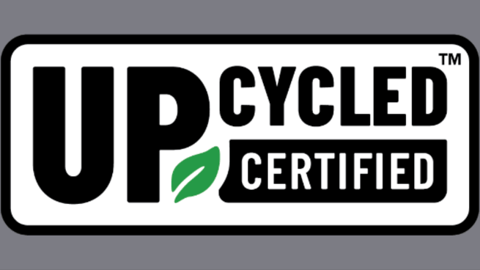Upcycled Food Association’s Ben Gray on the momentum of sustainable food systems
In April, the Denver-based Upcycled Food Association, which formed in 2019, launched its Upcycled Certified program in Canada. The new seal will help shoppers easily identify upcycled ingredients and products.
Ben Gray, co-founder and chief innovation officer of the association, recently spoke to Canadian Grocer about the progress upcycled food is making in Canada.
The interview has been edited for length and clarity.
How has the Canadian launch of Upcycled Certified gone?
It’s going really well. Since launching we’ve connected with hundreds of companies with ingredients and products in the Canadian market. There’s interest from the Canadian government as well as industry. A lot of companies see a key driver here that can help them meet their sustainability goals. We’re looking to bring the certification program to other parts of the world, and Canada has been a great learning experience.
How many Canadian companies are certified?
Currently, four companies have ingredients and products. As a distinction, the certification is for ingredients and products. It is not for companies. For the companies that have successfully gone through the process, that translates to 26 ingredients and products. We also have upwards of about 40 companies that are in the pipeline to get ingredients and products certified.
There are various definitions for upcycled foods. What is your definition?
Upcycled foods use ingredients that otherwise would not have gone for human consumption, are procured and produced using verifiable supply chains, and have a positive impact on the environment. I think of it as “three U’s” – unseen, unwanted and untapped. Unseen – things like tao fruit or coffee fruit where normally we’re only using the coffee bean or the cacao nibs but there’s all these other parts that can be used to make new products. Unwanted – ugly produce, fruits and vegetables that aren’t the right size or colour or maybe have some blemishes (but) can still be consumed and oftentimes taste just as good and are great for different applications. And untapped – things like oat milk. You’ve got a ton of pulp that’s being made as a result of oat milk that can be turned into a flour or spent grain.
A Dalhousie University study found 15.5% of Canadians have heard of upcycled foods. How does that compare to the U.S. and what can be done to raise awareness?
In the U.S., that number is closer to 10%. We know consumer awareness in Canada is higher. We also know Canada has five major grocery players, so the brick-and-mortar market is more centralized. Seeing upcycled food on the shelf is going to be really helpful for consumer awareness. For the hundreds of retailers who’ve publicly committed to reducing their carbon footprint, featuring upcycled food products on shelves and menus is a really tangible way to show that progress and engage with consumers.
How much impact can upcycled foods have on a massive problem like food waste?
Food surplus within the food industry is roughly worth US$250 billion a year. Generally, food waste is seen as a US$940 billion annual problem globally. We see already that we’re inching ever closer to one billion pounds of food that has been diverted as a result of certified ingredients and products.
How do consumers perceive upcycled foods?
We know almost 50% are willing to purchase upcycled products and 62% are willing to pay more for food and beverages that are dedicated to stopping waste. Consumers, in some cases, are willing to pay the same or more than [they would for] a conventional product.
What role can Canadian grocers play?
They end up driving a decent amount of innovation. If they want something to happen to an ingredient from the supply standpoint, they can probably make it happen. We know 95% of people want to do something about food waste. We’re talking about connecting with someone who already believes this is a pretty good idea and it’s the grocers who really have the power to amplify that message.
What reaction have you had from Canadian grocers?
We’ve made great progress with a few of the major Canadian grocers. We expect that upcycled products will be in all the major grocers in Canada in due time.
This article was first featured in Canadian Grocer’s August issue.



